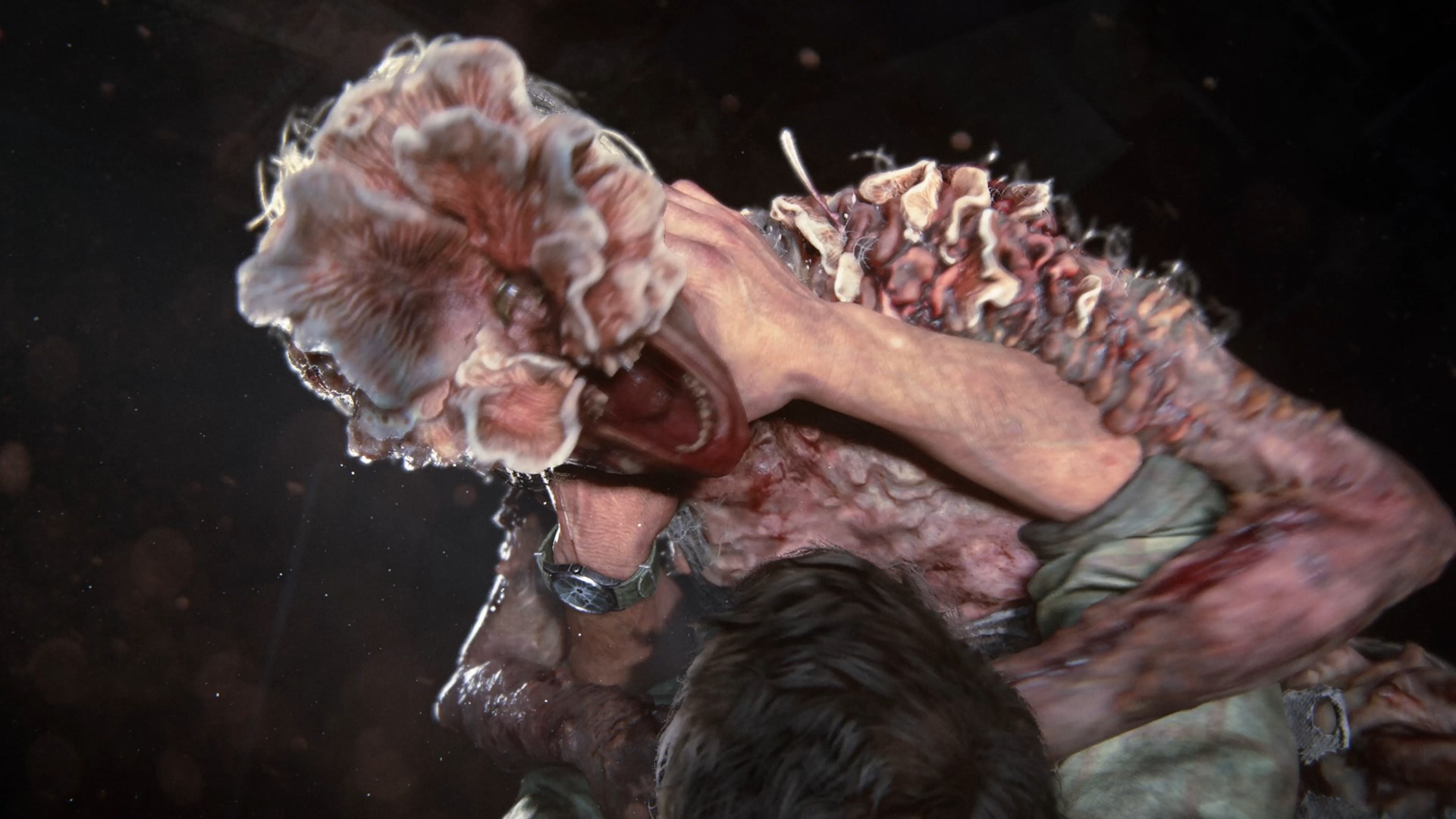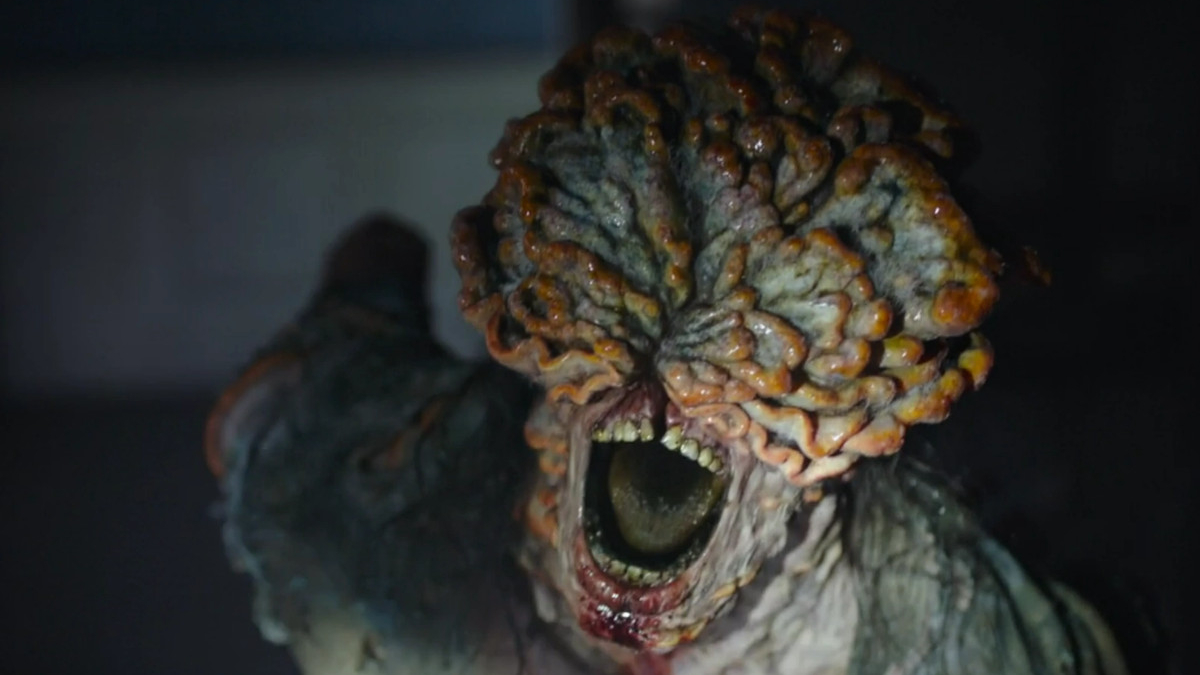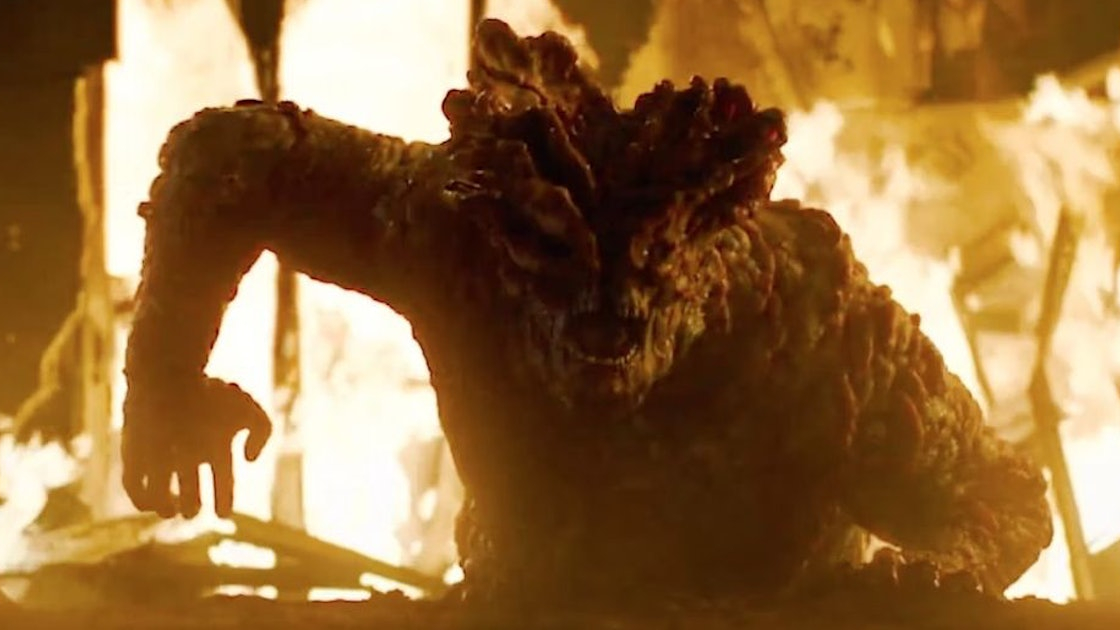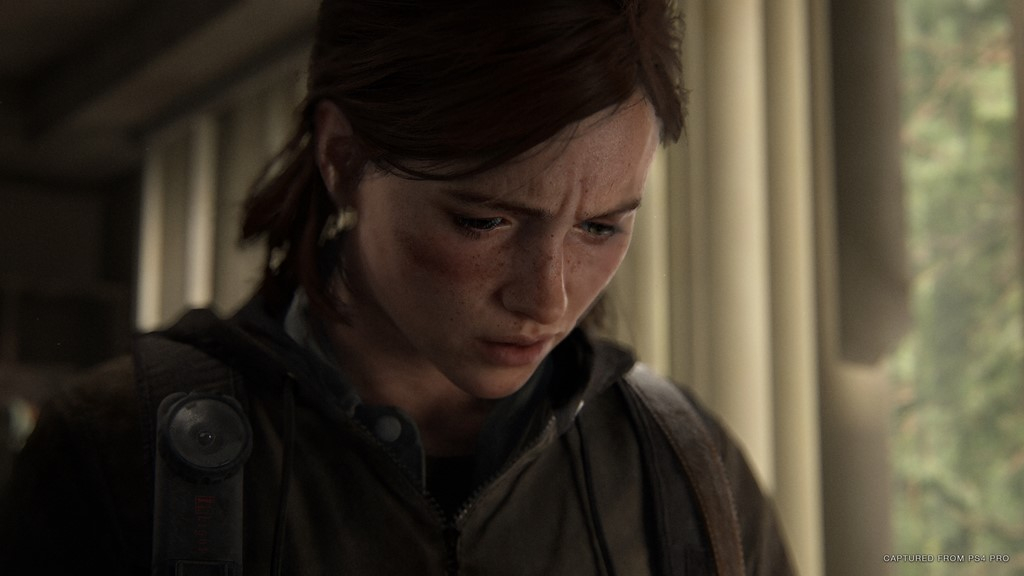
Twisted, bloated, and covered in mutating fungus, playing through The Last of Us was always a beautifully disgusting trip. But it turns out that while I may have felt queasy at times, it’s nothing compared to what the artists who had to work on the beautifully grotesque creatures in the TV show adaptation went through.
Watching The Last of Us TV show, I immediately noticed how the infection spreads differently than in the source material. Instead of clouds of spores that plague The Last of Us Part 1 (TLOU) game, the TV show opted for a viral network full of fungal tendrils. Watching the crawling and creeping tendrils claw their way through human skin unlocked a fear I never knew existed, but after talking to the artists at Wētā FX, this fear has since worsened.
“I asked one of the animators to look up parasitic worms as they go into the skin, and she just flat out said no'', Wētā FX’s Animation Supervisor Dennis Yoo said. “Instead, she gave me a bunch of bean sprouts, and I rolled with it because none of us had the stomach for parasitic worms”.
While bean sprouts are definitely less disgusting than parasitic worms, I’ll never be able to look at them in the same way again, despite them being one of my favorite veggies. All I’ll be able to picture is the food in front of me crawling under my skin and fingernails while trying to make it into my brain; I think I’ll pass on that.
Here come the clickers

Unfortunately, the disgustingly accurate gore doesn’t end with the bean sprout tendrils. In adapting The Last of Us game to TV, the New Zealand-based digital effects company Wētā FX had its artists staring at a ton of stomach-churning content daily.
“Beautifully disgusting encapsulates how we felt whilst working on [TLOU]”, Wētā FX’s VFX Supervisor Simon Jung said. “Especially with the child clicker, it’s absolutely horrifying, and your mind goes, ‘oh, that poor little thing, it was infected at such a young age’, but at the same time, there’s something that’s just so cool about it”.
As someone who spent most of their time smashing up the infected in TLOU without giving it much thought, watching the infected in greater detail without having to be mindful of quick time attacks gave me a new perspective on this apocalyptic world. Like Simon Jung, I paid more sympathetic attention towards the fungal undead.
Feeling bloated

However, regarding attention to detail, Wētā FX had me beat. One of the most significant focal points from the entire series was their work on the infamous Bloater, which made a guest appearance in episode 5.
Initially, this enormous creature was played by stuntman Adam Basil; however, writers Craig Mazin and Neil Druckmann later changed this to a fully digital replacement. While the prosthetic bloater was intricately stunning, “it needed to be bigger and more monstrous, the stuntman was only 6’4, and in the end, our CG Bloater was over 7 feet,” Yoo said.
CG also allowed Wētā FX greater control over the Bloater’s appearance. “We were able to cave the face in completely, which you could normally never do with an actual person underneath it”, Jung said. “It was a lot of fun reinventing the Bloater a little bit and giving it a little bit more life”.
More ways to feel sick

While Season one of TLOU has only just ended, I can’t help but theorize in horror how much gore will greet me in the second season. A couple of infected terrorized my playthrough of The Last of Us Part 2, and I’m afraid seeing them again on my TV will only work to reignite my nightmares.
The beautiful moments of Ellie riding around an overgrown and ruined Seattle will help ease the blow of the hyper-disgusting content
Sneaking through the waterlogged basements of Seattle, which housed the terrifyingly mutated Shamblers, sent shivers down my spine. But even though these Bloaters on steroids haunt my nightmares, there was one infected that I’ll never want to encounter again.
While I won’t name it here, Jung and Yoo agreed that this creature would be fun but haunting to work on: “It’ll definitely be hard to animate it because of the creatures inside of it”, Jung said. “But aesthetically, there’s a lot of really amazing stuff in the second game, like the Space Museum”.
Hopefully, the beautiful moments of Ellie riding around an overgrown and ruined Seattle will help ease the blow of the hyper-disgusting content that will be stuck on the screens of animators for who knows how long.







